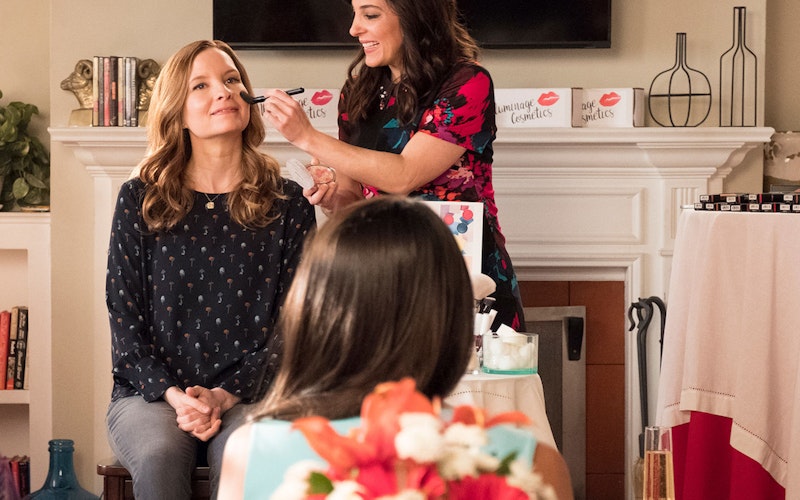
TV
Playing House and Friendship as Sacrificial Love
If you watch a lot of entertainment aimed at women, you might think that the only expressions of love in our culture are romantic or sexual. In Playing House, a sitcom on USA Network that just began its third season, friendships take center stage instead.
The series began with Emma (Jessica St. Clair) quitting a high-powered career to move to her hometown and help best friend Maggie (Lennon Parham) raise her daughter after Maggie discovers her husband’s infidelity. The pair certainly make mistakes in their relationship, but the dedication and self-sacrifice they enact undergirds everything else in the show.
In a recent column for The Hollywood Reporter, St. Clair discusses the choice to (spoilers!) represent her real-life experience with breast cancer in this new season of the show. She calls cancer a dramatic example of the way women “show up for each other” and how friends help each other through harrowing life experiences.
The story reminded me of Deanna Thompson’s book, which touched on the surprising ways the body of Christ showed up for her when she got an unexpected and serious diagnosis. Those of us who follow Jesus know we are called to be his hands and feet for each other, and that seems especially important when somebody is suffering. The simple church traditions of food and prayer give us a way to be there for each other through illness and loss. Certainly, biological family and romantic partners are important, but the body of Christ can support us in crucial ways as well. We recently celebrated the baptism of our daughter, and it was so meaningful to hear my church family alongside my visiting biological family promise to help us raise her in the faith, and to know that they all would.
This show has a habit of turning potential villains into sympathetic, flawed characters.
Sometimes Christians can fall for the cultural fixation on romantic relationships and undervalue other kinds of important relationships. Yet the Bible is full of stories about sacrificial friendship. Jesus is, of course, the prime example. He called his disciples his friends, and laid down his life for them in, he said, the ultimate expression of love. There are other models too, like David and Jonathan, Paul and Barnabus, Ruth and Naomi. It is certainly part of our tradition and part of God’s word that Christian love finds its expression in all kinds of relationships, not just what we would today call romance. It’s nice, if rare, to see this reflected in popular culture too.
While Maggie and Emma’s commitment to each other is the main narrative of Playing House, I also appreciate how that love extends to others in their community, and how others love and support them. In the second episode of the new season, Emma helps their friend Tina (Lindsay Sloane) escape a cosmetics pyramid scheme—even though the episode starts with her feeling nervous about their relationship because Emma had started dating Tina’s ex. Instead of playing the romantic jealousy angle, the show moves ahead with a story of friends helping and encouraging each other, even though they have a complicated relationship.
In previous episodes it seemed as if the Tina character was becoming a villain, or maybe a hapless victim of Emma and Maggie’s carelessness. But this show has a habit of turning potential villains into sympathetic, flawed characters who have something to offer, and who also need support. In the beginning of season 3 we also meet a cold, stern doctor whom Maggie is working with as a nurse. Maggie is afraid for him to see her swollen lips from a cosmetics snafu, but he surprises her by kindly treating her allergic reaction and complimenting her work.
Certainly, not everything the characters do in Playing House is admirable, but the unconditional love at its center is refreshing—especially in a genre so easily dominated by cynicism. Comedy can be found not only in cruelty or thoughtlessness, but also in friendship and gentleness.
Topics: TV, Culture At Large, Arts & Leisure